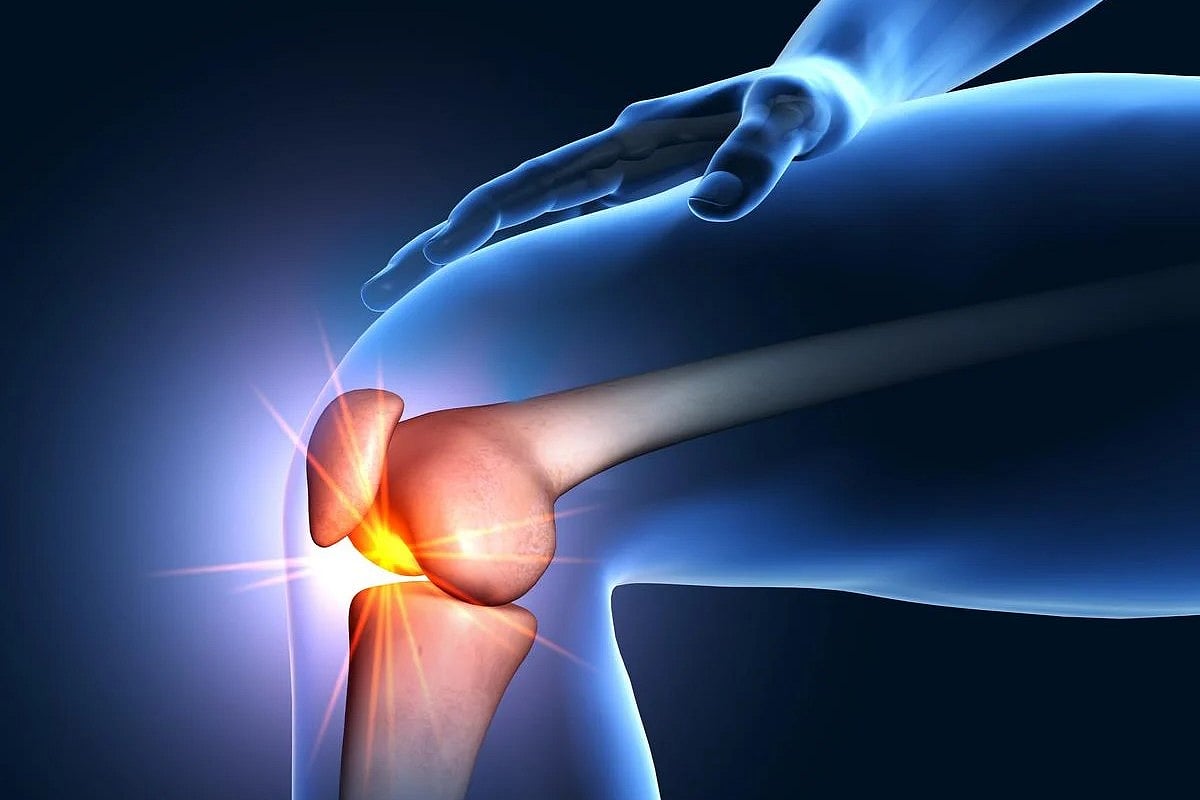MRI Radiomics Plus Biomarker Model Can Predict Knee OA Progression
WEDNESDAY, Aug. 27, 2025 -- Longitudinal magnetic resonance imaging (MRI) radiomics features of load-bearing knee joint tissues can help predict progression of knee osteoarthritis (KOA), according to a study published online Aug. 21 in PLOS Medicine.
Ting Wang, from The Third People's Hospital of Chengdu in China, and colleagues developed and tested the longitudinal Load-Bearing Tissue Radiomic plus Biochemical biomarker and Clinical variable Model (LBTRBC-M) to predict KOA progression. A total of 594 participants with Kellgren-Lawrence grades 1 to 3 and complete biomarker data were selected (mean age, 61.6 ± 8.9 years; 58.8 percent female; 79.3 percent White). A total of 1,753 knee MRIs were included: 594 at baseline, 575 at one-year follow-up, and 584 at two-year follow-up. The model was developed in the total development cohort (877 participants) and tested among 876 participants in the total test cohort.
The researchers found that the area under the receiver operating characteristic curves of LBTRBC-M for predicting joint space narrowing (JSN) and pain progression, JSN progression, pain progression, and nonprogression were 0.880, 0.913, 0.886, and 0.909, respectively. LBTRBC-M had overall accuracy of 70.1 percent. The prognostic accuracy of resident physicians improved from 44.7 to 49.0 percent to 64.4 to 66.5 percent with LBTRBC-M assistance.
"The integrated model using longitudinal MRI radiomics, biochemical biomarkers, and clinical KOA high-risk factors, improved the prediction performance of KOA progression. LBTRBC-M enhances the accuracy of resident physicians to predict KOA progression," the authors write.
One author disclosed ties to the biopharmaceutical and medical technology industries.
Disclaimer: Statistical data in medical articles provide general trends and do not pertain to individuals. Individual factors can vary greatly. Always seek personalized medical advice for individual healthcare decisions.
© 2025 HealthDay. All rights reserved.
Read this next
GLP-1 RAs Cost-Effective Versus Usual Care for Knee OA, Obesity
WEDNESDAY, Sept. 17, 2025 -- Compared with usual care, the glucagon-like peptide 1 receptor agonists (GLP-1 RAs) tirzepatide and semaglutide are cost-effective for people with...
Genicular Artery Embolization Safe, Relieves Pain for Symptomatic Knee OA
TUESDAY, Aug. 19, 2025 -- For symptomatic knee osteoarthritis (KOA), genicular artery embolization is a safe treatment, providing clinically significant pain relief for some...
Personalized Gait Retraining Beneficial for Medial Compartment Knee OA
WEDNESDAY, Aug. 13, 2025 -- For individuals with medial compartment knee osteoarthritis, a personalized foot angle modification may improve pain, reduce knee loading, and slow...
More news resources
- FDA Medwatch Drug Alerts
- Daily MedNews
- News for Health Professionals
- New Drug Approvals
- New Drug Applications
- Drug Shortages
- Clinical Trial Results
- Generic Drug Approvals
Subscribe to our newsletter
Whatever your topic of interest, subscribe to our newsletters to get the best of Drugs.com in your inbox.


